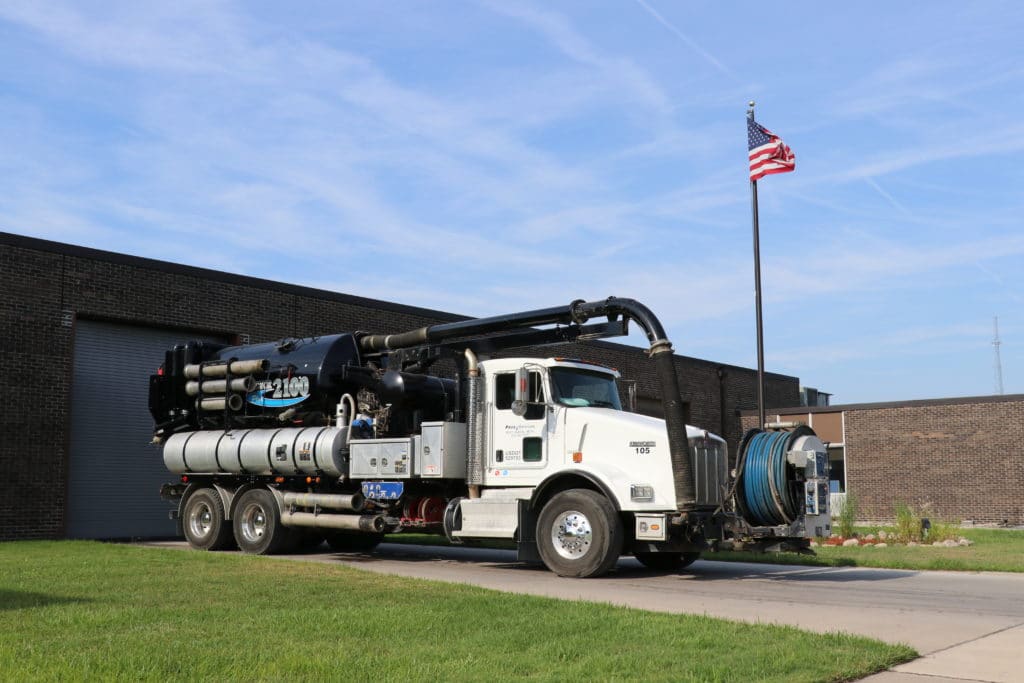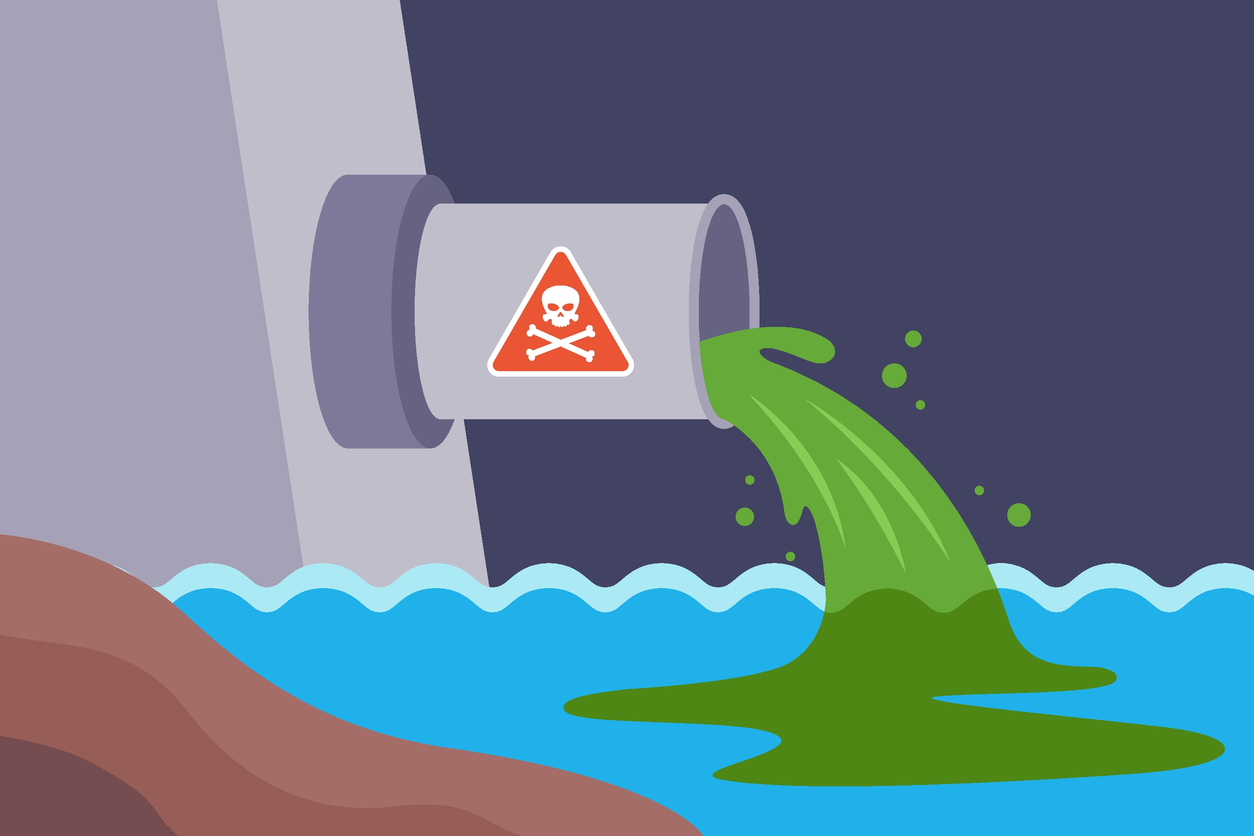Industrial Wastewater Treatment: Advanced Approaches for Effective Administration
Industrial Wastewater Treatment: Advanced Approaches for Effective Administration
Blog Article
Understanding the Comprehensive Refine of Liquid Garbage Disposal: Best Practices and Environmental Influence Factors To Consider
The management of liquid waste disposal is a multifaceted issue that calls for a detailed understanding of various finest methods and their associated ecological influences. From the kinds of fluid waste created to the approaches employed for collection, therapy, and final disposal, each action plays a vital role in safeguarding environments and public health.
Kinds of Liquid Waste
Comprehending the various kinds of fluid waste is essential for efficient monitoring and disposal techniques. Liquid waste can be extensively classified right into several kinds, each calling for distinct handling and treatment strategies.
Industrial liquid waste commonly has dangerous products, including hefty metals, solvents, and chemicals, created throughout manufacturing procedures. These wastes demand rigorous governing compliance to secure human wellness and the setting. Domestic fluid waste mostly refers to wastewater produced from households, including sewer and greywater, which, although much less harmful, can still pose substantial dangers if improperly taken care of.
Agricultural liquid waste, including runoff from ranches, usually consists of plant foods and chemicals that can lead to environmental destruction otherwise dealt with sufficiently. Clinical fluid waste, created from healthcare facilities, consists of contaminated liquids such as bodily liquids and chemicals, requiring specialized disposal approaches to avoid infection and environmental contamination.
Lastly, oil and grease waste, typically generated by restaurants and vehicle sectors, can trigger serious obstructions in sewage system systems otherwise managed appropriately. Understanding these categories promotes targeted strategies for treatment, conformity with regulations, and reliable disposal techniques, inevitably promoting ecological sustainability and public health and wellness safety.

Collection Methods
Reliable collection methods are essential for the proper monitoring of fluid waste, making sure that it is gathered securely and effectively prior to treatment or disposal. Various strategies are employed relying on the type of fluid waste produced, the volume, and the particular attributes of the waste.
One usual technique is using committed collection storage tanks or sumps, which are designed to catch liquid waste at the resource. These systems typically incorporate pumps that assist in the transfer of waste to bigger storage space containers or therapy centers. Additionally, mobile collection devices equipped with vacuum cleaner modern technology are utilized in circumstances where waste is produced periodically or in hard-to-reach locations.
For industrial settings, closed-loop systems can properly lessen spills and leaks, enabling for the healing and reuse of fluid waste. It is likewise vital to educate personnel on appropriate collection procedures to alleviate threats connected with unsafe compounds.
In addition, applying regular maintenance schedules for collection devices makes sure ideal performance and security. The assimilation of sophisticated surveillance systems can boost collection performance by giving real-time data on waste degrees and prospective dangers. Generally, reliable collection techniques are fundamental to sustainable fluid waste management methods.
Treatment Procedures
Treatment processes play a crucial role in the administration of fluid waste, changing potentially hazardous products right into risk-free effluents or reusable resources - liquid waste disposal. These processes can be broadly categorized right into physical, chemical, and organic methods, each customized to attend to details impurities present in the waste stream
Physical treatment approaches, such as sedimentation and filtering, work by eliminating put on hold solids and particle issue. These methods are frequently the initial step in the therapy chain, properly reducing the load on subsequent procedures. Chemical therapies entail making use of reagents to neutralize unsafe compounds, precipitate hefty metals, or oxidize organic toxins, thereby boosting the security of the effluent.
Biological treatment procedures, including triggered sludge systems and anaerobic food digestion, take advantage of the natural capabilities of microbes to deteriorate raw material. These methods are particularly reliable for wastewater including biodegradable toxins. Advanced treatment innovations, such as membrane layer filtration and advanced oxidation processes, are significantly utilized to accomplish greater levels of purification.
Including a mix of these therapy techniques not just makes sure compliance with governing standards yet likewise advertises environmental sustainability by recouping important resources from liquid waste.
Disposal Options
How can organizations ensure the risk-free and accountable disposal of liquid waste? Efficient disposal alternatives are critical for securing public wellness and the environment. The key approaches consist of land treatment, incineration, and disposal complied with by discharge right into municipal wastewater systems.
Land disposal involves the cautious control of liquid waste in marked landfills, guaranteeing that it does not seep into bordering soil or water. Incineration, on the various other hand, subjects liquid waste to heats, converting read the article it right into ash and gases, which require appropriate filtering to minimize exhausts. This technique read more appropriates for contaminateds materials that can not be treated with standard methods.
In cases where fluid waste can be dealt with, companies may choose chemical or biological therapy processes to reduce the effects of dangerous elements before discharging the treated effluent right into municipal systems. This route typically aligns with governing demands, ensuring that the effluent satisfies safety and security standards.
Inevitably, organizations need to perform detailed evaluations of each disposal option to identify its stability, thinking about factors such as waste make-up, governing compliance, and prospective dangers to health and wellness and the setting. By picking appropriate disposal approaches, organizations can add to a responsible waste management strategy.
Environmental Effect
The ecological impact of fluid waste disposal is an important consideration for companies looking for to lessen their eco-friendly footprint. Additionally, the discharge of untreated or improperly dealt with waste right into surface waters can result in eutrophication, leading to oxygen depletion and the subsequent fatality of fish and other organisms.

To mitigate these influences, organizations need to adopt ideal techniques such as executing strenuous waste treatment procedures, promoting recycling and reuse, and adhering to governing criteria. By taking an aggressive method to liquid waste monitoring, entities can substantially minimize their ecological impact while sustaining lasting growth objectives. Ultimately, an extensive understanding of the environmental influences connected with liquid garbage disposal is important for informed decision-making and responsible stewardship of natural deposits.
Conclusion
Effective management of liquid waste is essential for securing environmental integrity and public health. Ultimately, a comprehensive understanding of liquid waste disposal not only mitigates environmental effects however also fosters a dedication to responsible source management and ecological stewardship.
The monitoring of fluid waste disposal is a multifaceted problem that needs an extensive understanding of different best techniques that site and their associated environmental influences. From the types of fluid waste produced to the methods used for collection, treatment, and last disposal, each action plays an essential role in safeguarding environments and public health.The ecological influence of liquid waste disposal is a crucial factor to consider for companies seeking to lessen their ecological impact. Ultimately, a thorough understanding of the ecological effects associated with fluid waste disposal is important for educated decision-making and responsible stewardship of all-natural resources.
Inevitably, a thorough understanding of liquid waste disposal not just mitigates ecological influences however also cultivates a dedication to liable source monitoring and ecological stewardship.
Report this page